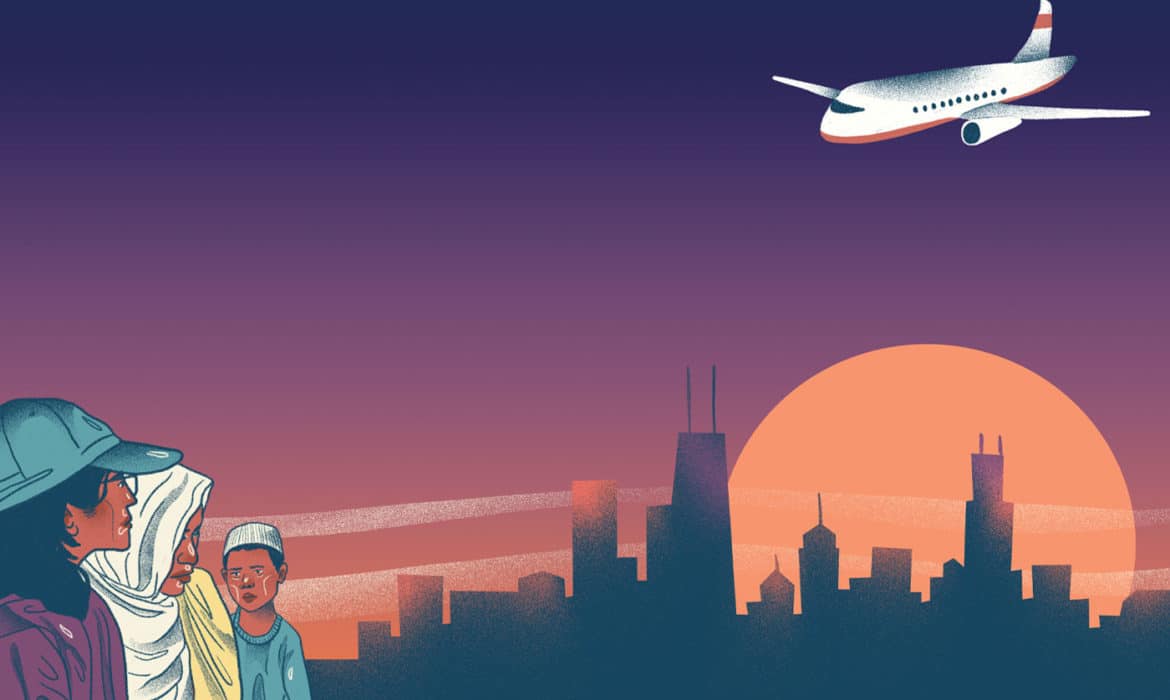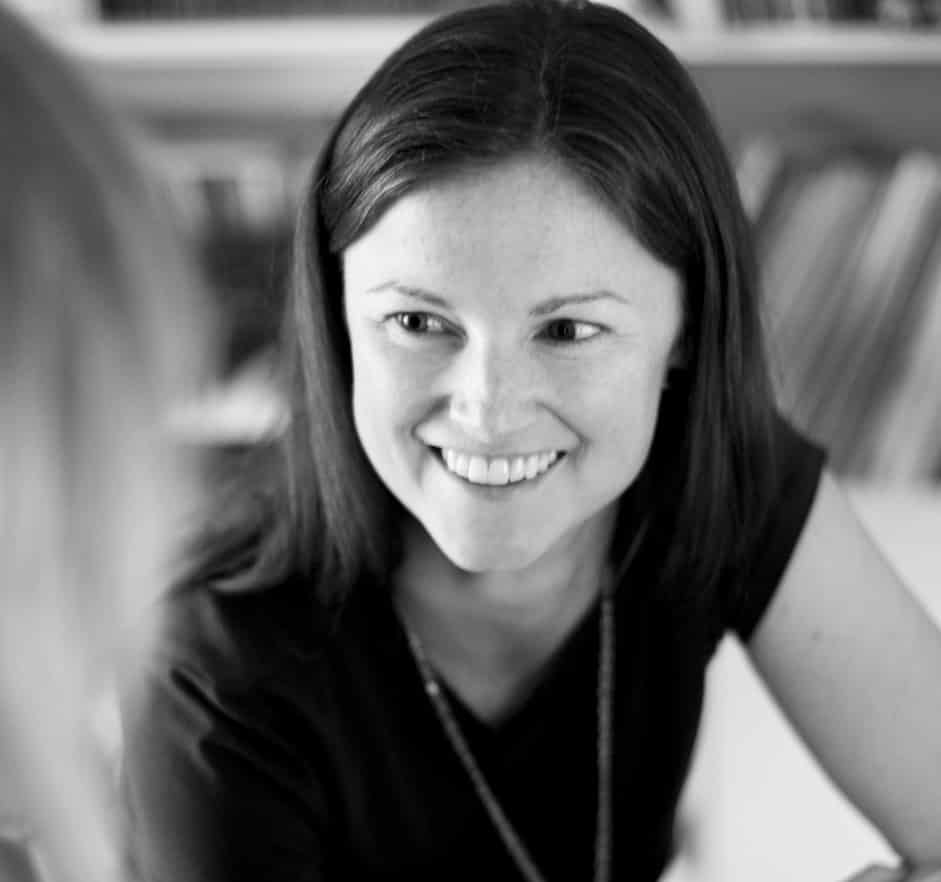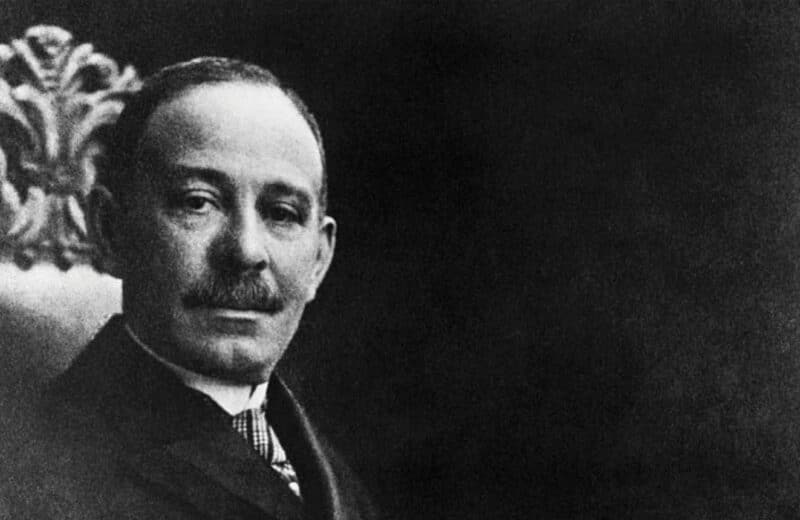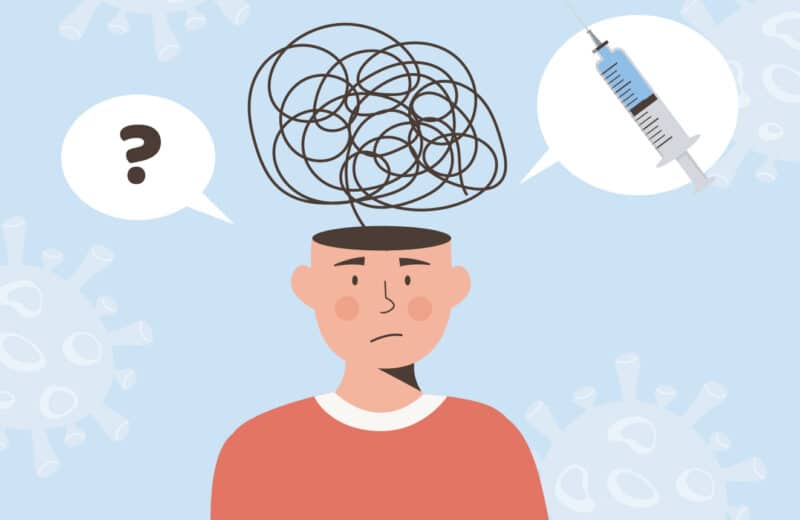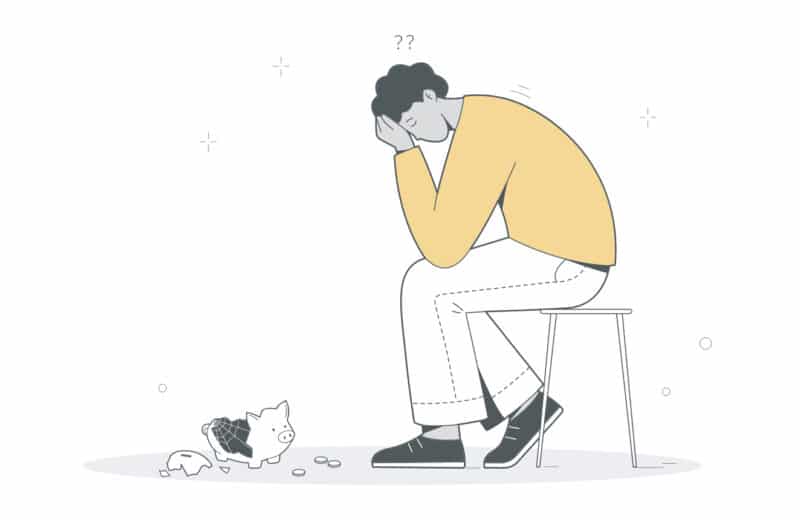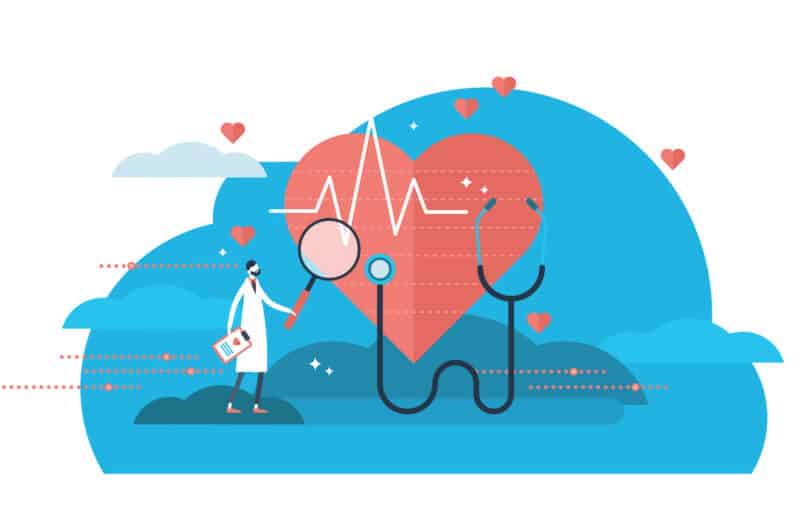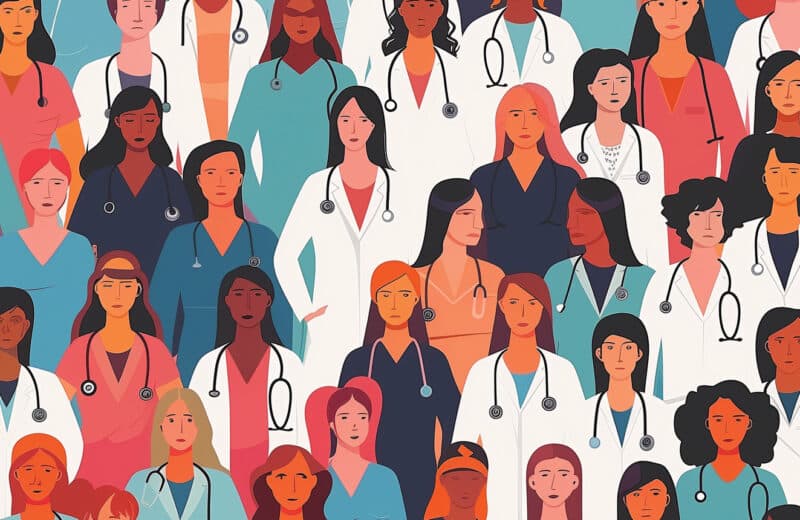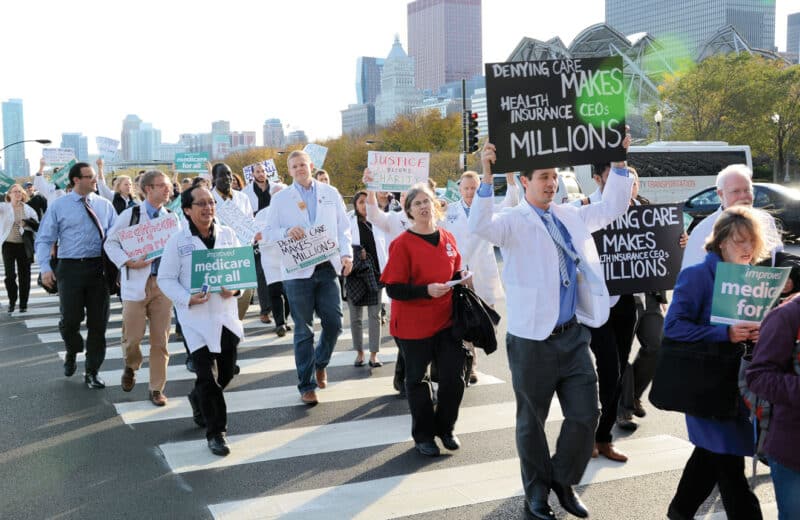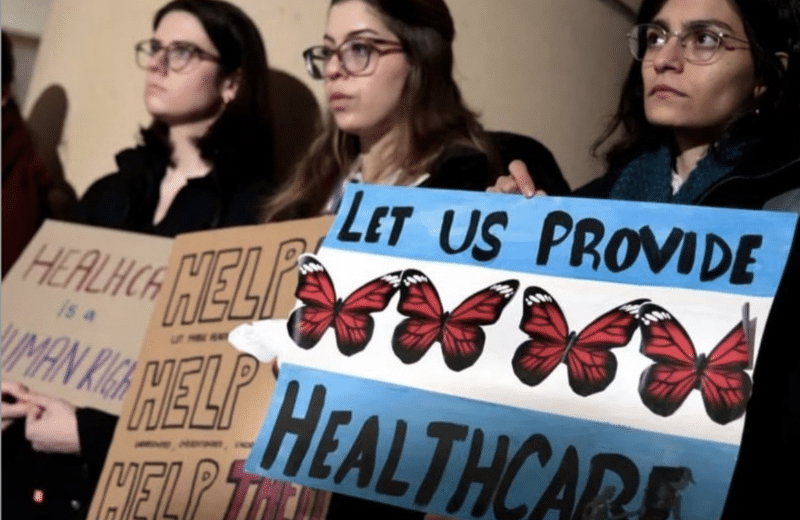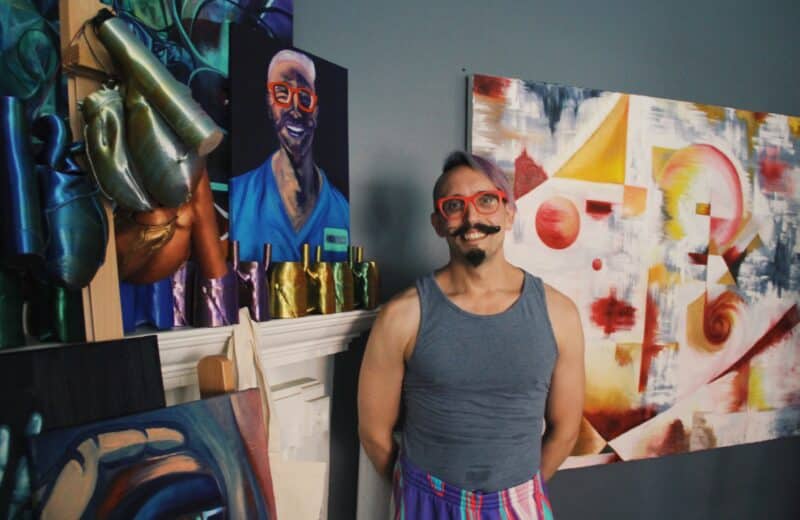Organizations and medical professionals step up to help the newest Chicagoans
When the Taliban reclaimed Afghanistan in 2021, 2.6 million people fled the country, seeking refuge in other places across the world. Nearly 2,000 of those refugees made their way to Illinois, many of them landing in Chicago, where local organizations helped them resettle in a new and unfamiliar place. A large piece of that resettlement: healthcare.
Every refugee receives help from the federal government during their first three months in the United States. During this time, they often get vaccinations, meet with physicians, and undergo any medical care they may need. Yet navigating a new system, where one may not know the language, culture, or how to get around, is challenging.
A number of organizations — including Heartland Alliance, RefugeeOne, and Catholic Charities — exist to help refugee and immigrant families connect with medical care. In the past few years, these organizations have had to adapt to changing government policies and the Covid-19 pandemic. In some cases, doctors, seeing a growing need, have created organizations and facilities to serve these communities. The services are welcome resources for the increasing number of people arriving in the city.
“For so many of the folks coming here, the Western medical model is just completely foreign,” says Shannon Ericson, who manages clinical operations for Heartland Alliance Health, part of the nonprofit Heartland Alliance. The organization helps refugee and immigrant families connect with medical care, serving those “who have the most challenges and the fewest resources.”
Ericson adds, “There’s so much to navigate and contextualize.” Advocates often have to step in to help participants access the kind of care they require, she says.
Destination: Chicago
Chicago, it turns out, may be one of the most hospitable cities in the U.S. for refugees and immigrants, advocates say. Illinois is one of only six states that offer access to healthcare regardless of immigration status. In 2019, a bipartisan research group focused on immigration reform, New American Economy, named Chicago the no. 1 city in the country for immigration, and the city topped the list in 2021 as well.
“This ranking reflects the passionate and dedicated work of countless public officials and community members across our city who have come together to stand up and fight for the rights of our immigrant and refugee communities, no matter the cost,” Mayor Lori Lightfoot said at the time.
That is due, in part, to the growing coalition of medical professionals and advocates in the city addressing the needs of these communities and providing resources for children, asylum seekers, and newly arrived residents.
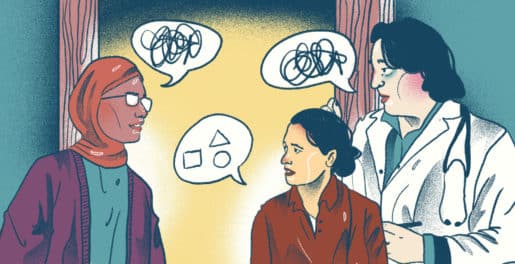
“Chicago is very resource rich,” says Minal Giri, MD, who founded the Chicago-based Refugee Immigrant Child Health Initiative in 2017, part of an effort supported by the Illinois Chapter of the American Academy of Pediatrics. “We have so many social service organizations and legal nonprofit organizations. We have so many medical centers and academic institutions. We’re very lucky in terms of the resources we have access to.”
Giri started the initiative during the Trump administration, when thousands of immigrant children were separated from their families, drawing attention to the struggles facing immigrant families.
Child Health Initiative focuses on physician education and advocacy. The initiative has “mobilized and galvanized pediatricians around improving policies and increasing access to care,” Giri says.
Meeting demand
The Trump administration also severely restricted the number of refugees allowed entry to the U.S. In 2019, just over 1,000 Afghan refugees came to Illinois, but in 2020, only 351 came. Then, in 2021, Illinois admitted 1,890 refugees from Afghanistan alone. That led to a significant uptick in demand for resources and the number of people that organizations like The Heartland Alliance serve.
The Covid-19 pandemic and the Afghan resettlement crisis posed a major problem: capacity. Heartland Alliance health centers saw more clients. The medical facilities — located in Uptown, Englewood, and the West Loop — also partner with other healthcare non-profits, like Heartland Health Centers, which has a location on Devon Avenue. They are close to where many refugees and immigrants live, says Emma Yaaka, a medical case manager for Heartland Human Care Services.
For refugees and immigrants who have not already been granted asylum, medical attention is extremely important in order to document trauma they have endured, drastically improving the likelihood that the government will offer the person refuge. In fact, of the 2,584 cases initiated by Physicians for Human Rights between 2008 and 2018, 82% of asylum seekers who received forensic medical evaluations were granted asylum, compared with 42% of those whose evidence was not recorded by a medical expert, according to a 2021 study published in the Journal of Forensic and Legal Medicine.
“Every asylum seeker deserves a fair chance at having the story that led them to our country listened to, and to a fair and standardized evaluation.”
Lawyers often ask for this type of evaluation, but they can be difficult to get, largely because of a lack of facilities that conduct them. The evaluations can take several days, and risk re-traumatizing victims who have endured harrowing events.

That’s why Yessenia Castro-Caballero, MD, founded the Loyola Medicine Asylum Clinic at MacNeal Hospital this year with Amy Blair, MD. Much like Loyola’s mission to serve the underserved, “this clinic is our mission in our own backyard,” says Castro-Caballero. “Every asylum seeker deserves a fair chance at having the story that led them to our country listened to, and to a fair and standardized evaluation. We help our fellow refugees and asylum seekers by inviting them into our institution to receive the evaluation they deserve.”
The clinic provides evidence-based medical examinations for asylum seekers who have experienced trauma, including human trafficking, torture, anti-LGBTQ violence, religious persecution, female genital mutilation, sexual and gender-based violence, and persecution by gangs.
Services for a new wave
Despite improvements in services and connections in the city, immigrants and refugees could benefit from even more, such as better access to mental healthcare.
“The process of resettling in the United States is massively traumatizing. Participants come here and they’re immediately thrust, unfortunately, into poverty,” says Heartland Alliance’s Ericson. “I think a lot of the participants that we work with, whether or not they recognize it, are living with PTSD [post-traumatic stress disorder] and carry a lot of those symptoms.”
The groups supporting these immigrant and refugee communities expect the number of people they serve to continue to rise, at least in the foreseeable future. The war in Ukraine has resulted in 5.8 million Ukrainian refugees, some of whom have made their way to Chicago, including children. In the next 40 years, Pew Research estimates that 1 in 3 people in the U.S. will either be immigrants or have immigrant parents, compared to 1 in 4 today.
“We can vaccinate them and perform routine care, but they need a lot more,” Giri says, adding, “Pediatricians have a public health role. Our care extends beyond the walls of our clinic. It’s our duty.”
It is never easy to uproot one’s life and become a refugee in a foreign country. But those who land in Chicago are relatively fortunate. The city has a wealth of individuals and organizations to help with healthcare and resettlement, continuing Chicago’s long tradition of welcoming refugees with open arms.

